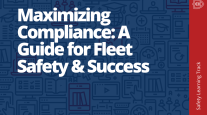Letters: Wheel Covers, Illegal Brokering, Taxation Fairness
Wheel Covers
Reading the July 15 article titled “Carriers Say Wheel Covers Cut Fuel Costs By Making Vehicles More Aerodynamic” raised a flag with my safety sense. Working for a fleet safety firm, we conduct fleet inspections and compliance review audits for carriers looking to improve/maintain their safety performance and scores for the Federal Motor Carrier Safety Administration’s Compliance, Safety, Accountability program.
As part of this service, we review the carrier maintenance shops and/or service vendors. I wondered how drivers and techs could inspect wheels, lugs and tire pressure, so I reviewed the installation video for one of the wheel covers mentioned in the story. There I learned that the covers are spring-loaded and have a single inspection port about the size of one of the dimples.
As a former roadside inspector, I have found that, while it may be possible to determine whether a truck tire is flat by kicking or striking it, it is not possible to determine an underinflated tire without putting a gauge to it. A tire with less than half the inflation pressure that is labeled on the sidewall is a Commercial Vehicle Safety Alliance out-of-service violation.
The fact that the valve stem for the inside tire, on a set of duals, is generally opposite the stem location for the outside tire would appear to make it difficult to inspect the pressure of both tires through the single inspection port of the wheel cover.
The covers make it more difficult to inspect the wheels for cracks or loose lugs as well. Fleets that benefit from periodic maintenance schedules requiring removal of the covers for wheel and tire inspection must contend with this added chore and expense. Using one of the digital tire-pressure monitoring systems in conjunction with a lug-lock system would help to address these issues but would also add to the overall expense.
I wonder if the SAE protocol used to determine the fuel savings considered the human factor involved with inspection and maintenance of the wheels and tires.
Fuel cost is a huge factor in fleet operations, but if maintenance is compromised, it wouldn’t take too many prematurely worn tires or lost duals to reel in that 0.7% fuel savings.
I’m just suggesting that carriers not lose sight of the big picture when focusing on specific issues.
Steven Belyus
Partner and Accident Reconstructionist
Scientific Traffic Accident Reconstruction Specialists (STARS) Consulting LLC
Albany, Ohio
Illegal Brokering
In less than 90 days, the new highway law — MAP-21 — is to be enforced in the United States. Here is what our companies are doing to comply.
• To all shipping clients: Starting Oct. 1, it is illegal for a motor carrier working with your company to take possession of your freight for “brokering” purposes. Motor carriers are now limited to hauling your load alone, in their own tractor and trailer.
This means that the trucker to whom you tendered the load is the only one who can come and load your cargo. If another trucker shows up, you must make out a new bill of lading in that carrier’s name and MC number [Operating Authority] and pay only that carrier.
If you are tendering your loads to a broker or logistics company, your bill of lading can be made out only in the actual hauling carrier’s name. Brokers or logistics companies cannot be in possession of your cargo.
Failure to comply with the new regulations means two things could happen to your company: It may be subject to the Federal Motor Carrier Safety Administration fine that the illegally brokering motor carrier pays, not to exceed $10,000. Or, your company may have to pay twice for the same act of transporting your load — or both.
• To all motor carrier clients: Starting Oct. 1, it is illegal to take possession of your shipper’s cargo for brokering purposes. If you don’t have power and a trailer for that load, you cannot take possession. Only your brokerage can solicit the shipper for the arrangement of transportation, and only your brokerage can invoice that shipper for that move.
All motor carriers, even the largest in the nation, can take possession of freight only with their equipment, which may include owner-operators.
Every form of “truck brokering” is outlawed. The only brokering allowed after Oct. 1 is licensed property brokering by your own separate brokering company established for brokering with a separate MC number, different company name, Federal Employer Identification Number (FEIN), address and phones, etc. Your motor company is barred from “brokering” as you knew it in the past.
• To all our brokering and brokering agent clients: Starting Oct. 1, it is illegal to take a load from another broker or a trucking company. You can arrange transportation only for a shipper, as defined, including forwarders, customs brokers and others named in MAP-21 who are in possession of cargo.
Double brokering is prohibited, and the penalty shall not exceed $10,000, if discovered. You must take steps to ensure that the motor carrier you brokered the load to is the one that shows up for the cargo tendered. You are a “shipper” by law, not a carrier, and are subject to failure-to-comply stipulations of the shipper listed above. You can solicit shippers only to “arrange” transportation. You cannot be in possession of that cargo. You cannot insure that cargo, except contingently. You cannot be a party to the BOL as a carrier. You cannot take a beneficial interest in that cargo.
Everyone knows that the brokering taking place today, i.e., truck brokering, will not be in conformance with MAP-21. The question is: How will everyone react if and when the new law is enforced? I know of two states actively researching MAP-21 as a new source of much-needed revenue.
Is everyone ready to change the way they broker freight?
David Dwinell
Owner
LoadTraining.com
Phoenix
Taxation Fairness
Your July 15 editorial, “Taxation Fairness,” is dead wrong.
In an era where everyone is scrambling to find the resources to maintain our infrastructure, you advocate draining railway revenues — which are heavily committed to track maintenance and upgrades — into Alabama’s general fund. I doubt that the general fund allocates much to transportation infrastructure, and if funds are provided, they will flow to highways.
Railroads pay for their own infrastructure and, among all industries, have the highest rate of their revenues being directed to capital investments. Does Transport Topics really believe that politicians can spend railroad transportation revenues more appropriately than the railroads themselves?
Truckers receive a benefit in that the Alabama and federal fuel taxes they pay go to highway maintenance and improvements, and that “investment” makes them more competitive with railroads. You need to redefine “fairness.”
Michael Smith
President
Finger Lakes Railway Corp.
Gilmanton, N.H.



